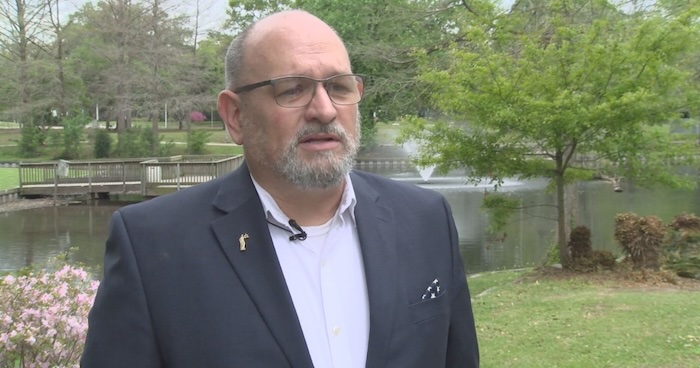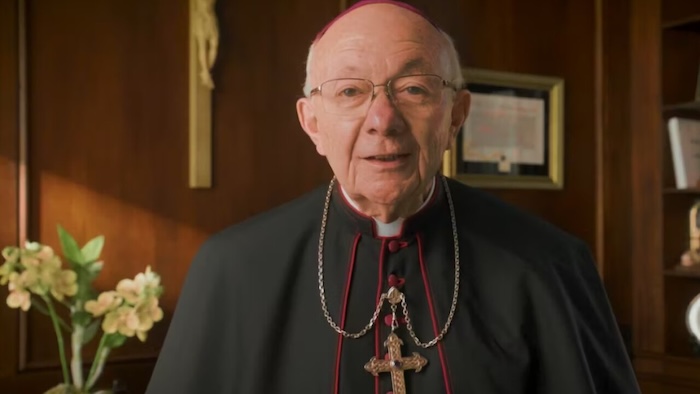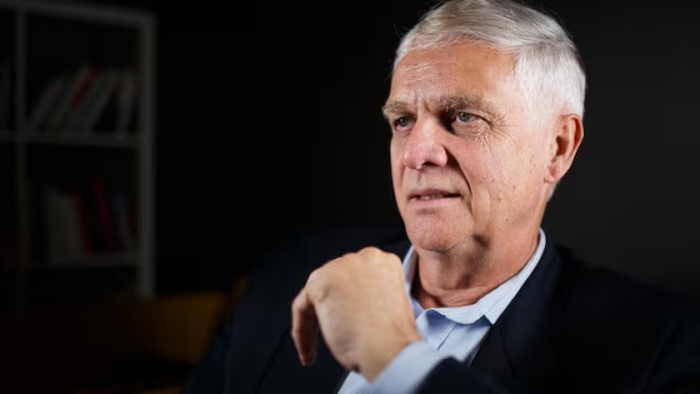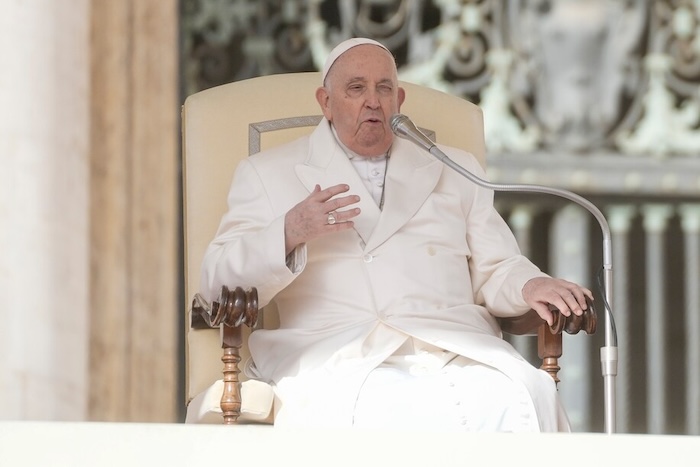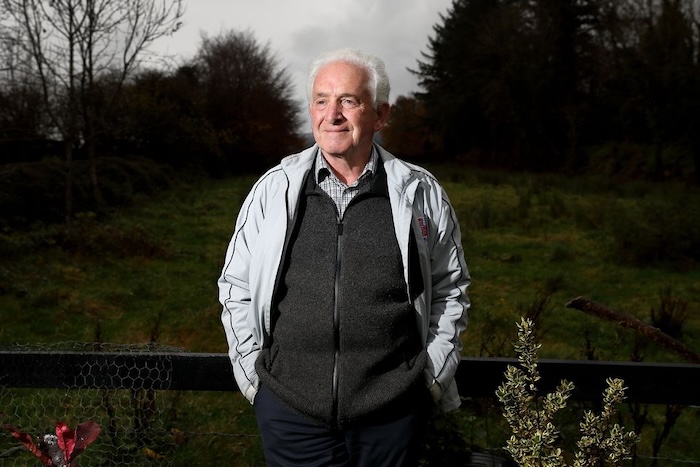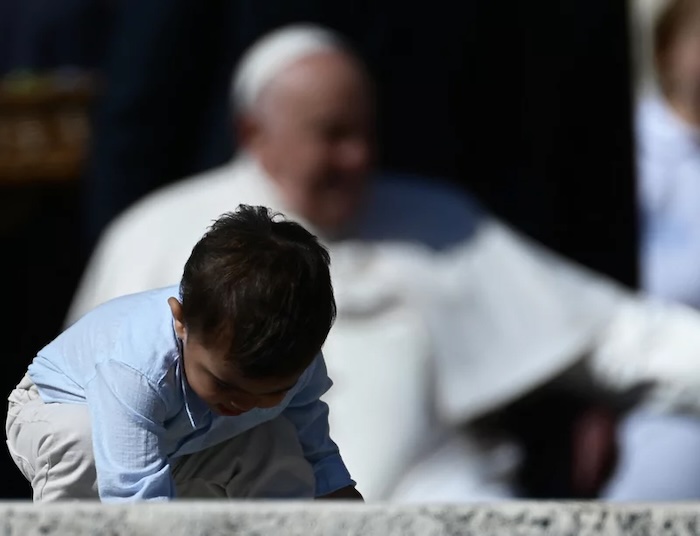
The Catholic Church officially opposes in vitro fertilization, yet many Catholics don’t view IVF as morally wrong.
By Jason DeRose
After first meeting while in Catholic high school, Erin and Mickey Whitford dated for 12 years: through college, grad school and early into their careers. Then, three years ago, the Cleveland couple married.
“We did make a promise to ourselves in front of our whole congregation at our wedding that we were going to accept children and love them and raise them Catholic,” Erin says. “It just seems that our journey is a little different.”
Different because Mickey, due to a genetic condition, has a low sperm count.
“We had tested the other options as much as we could,” Mickey says. “And we knew that it was more important for us to bring life into this world than to get the OK from someone on how to do so.”
Meaning they knew about the Catholic Church’s objection to in vitro fertilization but decided to use the procedure anyway.
“We prayed,” Erin says. “We talked to each other. We talked to our families.”
Doctors created three embryos that the couple could use to have children.
“One is obviously inside me now about to be born in the next month,” says Erin, as she smiles and places her hand on her stomach.
Erin and Mickey plan to use the other embryos in the coming years to grow their family. But they did have to tell their fertility specialists what should become of the embryos if they end up not using them. The Whitfords decided to donate them for medical research.
“Our intent is solely to bring life into this world,” Mickey says. “We understand the few points that the church has around separating the conjugal act from the creation of life. And trust us that if things could have been that way we would have wanted it to be that way as well.”
IVF raises concerns about what is natural and what is moral
Religious objections to in vitro fertilization came into sharp focus after the Alabama Supreme Court afforded frozen embryos the same legal protections as children. While many religious groups in the U.S. have no specific prohibition to the procedure, the Catholic Church clearly opposes it. But many Catholic couples turn to IVF despite their church’s teaching.
The Catholic Church has two main objections to IVF.
“Procreation is intrinsic to the physical union of the couple,” says Roberto Dell’Oro, professor of theological studies at Loyola Marymount University in Los Angeles and director of the school’s Bioethics Institute. He says the first objection to IVF is that it manipulates what should be a natural process.
“In this case manipulation of human life for the sake of the desire of a child,” he says, “but one in which the end does not justify the means.”
Because IVF usually creates more embryos than the couple needs or wants, Dell’Oro says the church’s chief moral objection is what becomes of those “extra” embryos. Often they are kept frozen for years, but then discarded when a couple decides to not have more children. Other times, those additional embryos are donated to scientific research.
“Though embryos should not be looked at as children,” says Dell’Oro, “they should, however, be seen as having the promise of life that develops into a child.”
Conscience is a guiding principle for reproductive decisions
It’s a conundrum for Catholics with fertility problems who want to have children and want to abide by their church’s teachings. But the church has a variety of teachings about reproduction, and for many the issue has become which church teaching to uphold.
“The church takes motherhood very seriously,” says Jamie Manson, president of Catholics for Choice, a group that advocates for abortion rights and other forms of reproductive health care, including IVF.
“But the church also creates shame for the very people who are trying to do what the church says it wants them to do, which is have children and create families,” she says.
Manson worries that shame leads people away from the Catholic Church. She’d like to see congregations support couples during the religious questions and emotional stresses that arise during infertility.
And in the end, if a couple decides to use IVF to help them have children, Manson says that decision should be considered a valid and defensible religious choice.
“Conscience is a core tenant of the Catholic faith,” she says. “The Catechism of the Catholic Church is very, very specific. It says in all that we say and do, we must have our individual conscience as our guide, and that it’s our individual conscience that must determine what is just and right.”
One’s conscience, of course, is formed in large part by the teachings of one’s religion. But it is also informed by reason, emotion and experience. Data show that while the Catholic Church teaches one thing, the practice and belief of Catholics is quite another.
A Pew Research survey in 2023 found that 55% of white, non-Hispanic Catholics say they or someone they know personally have used fertility treatments. And according to a 2013 Pew survey, just 13% of U.S. Catholics believe in vitro fertilization is morally wrong.
Fertility treatments could be considered gifts from God
More than two decades ago, suburban Minneapolis couple Heidi and Dan Niziolek decided to start a family with the help of IVF.
“We got married a little bit later in life,” Heidi says. “We both knew that we wanted to have children and we were up against a clock.”
Dan is a lifelong Catholic. Heidi joined the church when they married.
“We wanted children out of love to really bring up and nourish and love and have,” Dan says. “The entire way it was really all about that.”
As they began IVF treatments, the couple asked their congregation to pray for them during a difficult time. But Heidi, who’s a registered nurse, says they did not ask their priest for approval.
“It really, really kind of makes me feel very nauseated to have people that are not in the medical profession telling people going through this process that there’s something wrong with it,” she says.
The couple speaks tenderly of the entire process, from meeting with the fertility specialists to the actual appointment at which doctors implanted two embryos.
“The nurses and doctors were extremely caring and loving,” Dan says.
“They turned down the lights,” Heidi says. “It was sort of romantic. There was wine.”
“They had us choose the music we wanted playing,” Dan says. The couple picked Enya’s song “Only Time.”
“We didn’t have sex, but it was very intimate,” Heidi says.
“A beautiful moment,” Dan says.
Their decision to have kids with the help of the procedure was deeply shaped, says Dan, by Catholic values — values the couple gives thanks for every time they think about their now 22-year-old twins — a boy and a girl they consider gifts from God.
“If this isn’t about love, if this is not about compassion and the commitment we’ve made and the joy we’ve had with our kids,” says Dan, “I don’t know what’s more of a miracle than that.”
Complete Article ↪HERE↩!

